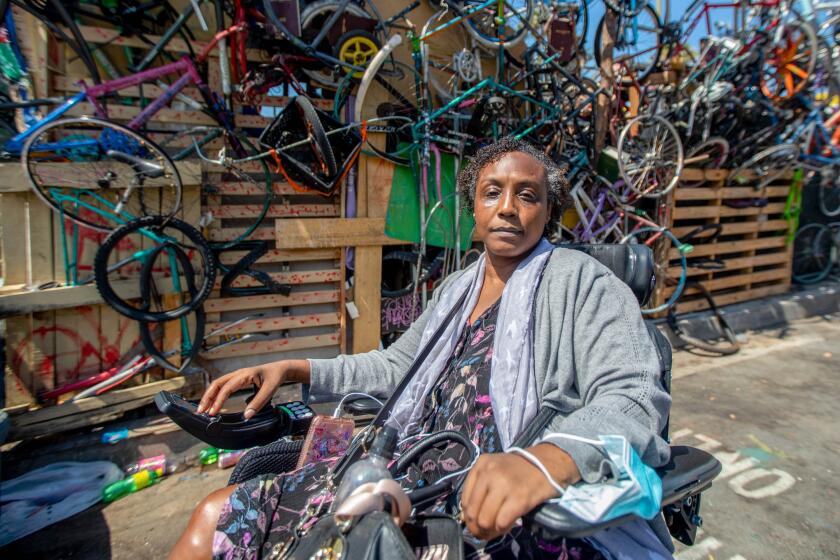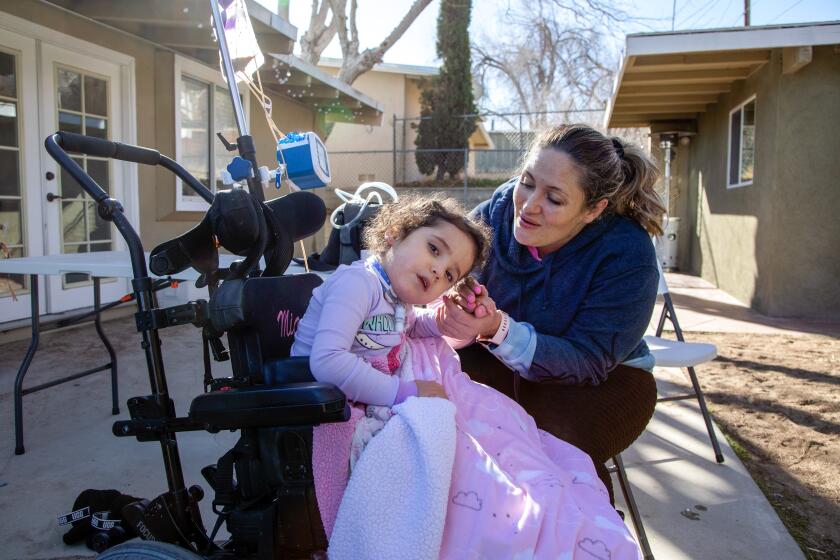Protests intensify as disability rights case nears deadline for Supreme Court petition
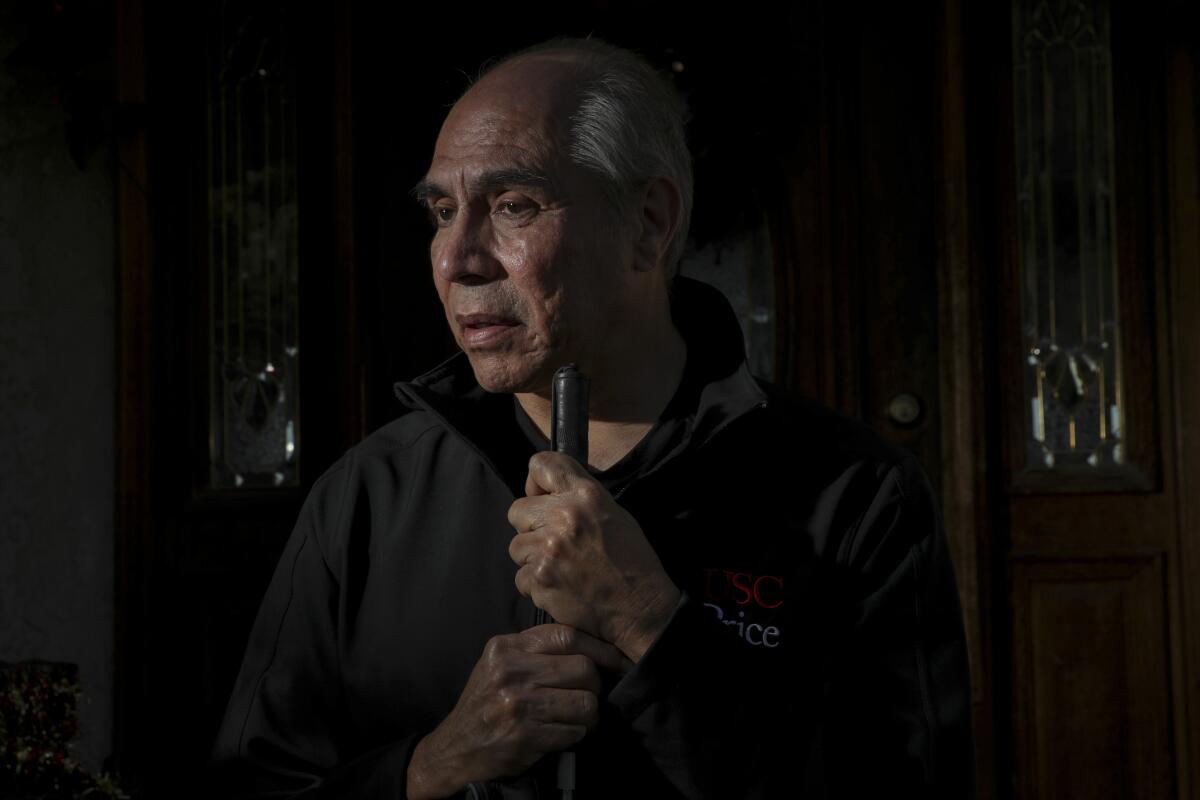
- Share via
Roy Payan and Portia Mason, both blind, needed help from their community college: audio recordings of texts, computer screen reading software, classroom materials in a format they could understand, when lecture notes on a whiteboard are the norm.
The students said the college was unprepared to support them and failed to provide the timely accommodations to which they were legally entitled. In 2017, they and the National Federation of the Blind filed a lawsuit against the Los Angeles Community College District, alleging discrimination under federal laws that guarantee equal access to education for those who are disabled.
They have won twice in federal court. A 9th Circuit appeals panel said the lack of equal access to a college education, though unintentional, violated the students’ civil rights. But LACCD — in a strategy that has outraged disability rights activists and students who are disabled — had not conceded defeat as its board of trustees neared a deadline this week to decide whether to appeal to the U.S. Supreme Court.
The district argues that because it did not intentionally discriminate against the two students, it did not break federal laws that protect people with disabilities.
The death of Engracia Figueroa has amplified calls to fix a system that disabled activists have called archaic and dangerous.
“The district is not seeking to change in any way the constitutionality or human rights of the [Americans with Disabilities Act], which we support. The issue right now is whether a person should be able to sue a publicly funded entity, and to profit from taxpayer money, for non-intentional discrimination,” said William Boyer, the LACCD spokesperson. “It is a legal issue that even different levels of our judicial system are struggling with.”
The suit asked for accommodations for Payan and Mason and a broad fix in the way the nation’s largest community college district serves students who are blind or disabled. To ensure that LACCD would not violate disability laws in the future, campuses must make textbooks, course materials and software accessible for any student who is blind, the plaintiffs demanded.
Payan was ultimately awarded $40,000. Mediation has been ongoing since last month.
Disability rights advocates have not wanted to risk a showdown with a conservative-leaning Supreme Court. If the high court were to take up the issue and side with LACCD, disability rights protections could be weakened in a precedent-setting case, they said. Their concerns have been fueled by the opinion of one dissenting appeals court judge.
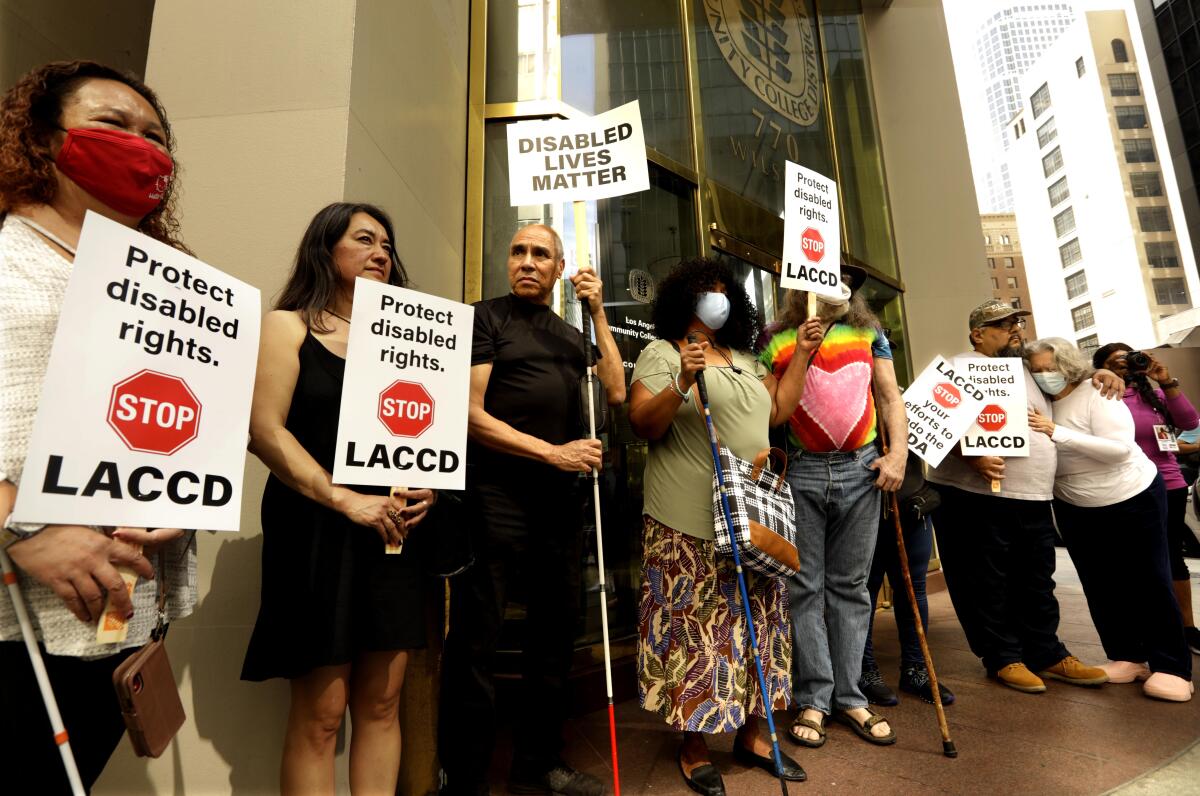
As the board’s deadline approached, protests intensified. More than 9,000 people signed a petition in support of Payan, 64, and Mason, 52.
Ahead of Wednesday’s board of trustees meeting, Payan, Mason and disability rights advocates demonstrated outside of LACCD headquarters in downtown Los Angeles, protesting against the district’s possible decision to go forward with the case.
After the protest, dozens of people who are blind, wheelchair users and supporters of the disability community gathered virtually and inside the boardroom to address trustees for more than two hours, expressing fear and disappointment that the board has not dropped the case knowing the potential harm to civil rights.
“I assumed when I heard about this that your lawyers hadn’t filled you in on what you were doing,” said Stephen David Simon, Los Angeles Department on Disability executive director. “I reached out to every trustee I could find — you still persisted.”
LACCD President Francisco Rodriguez, trustee Nichelle Henderson and board President Gabriel Buelna were present, while others attended virtually.
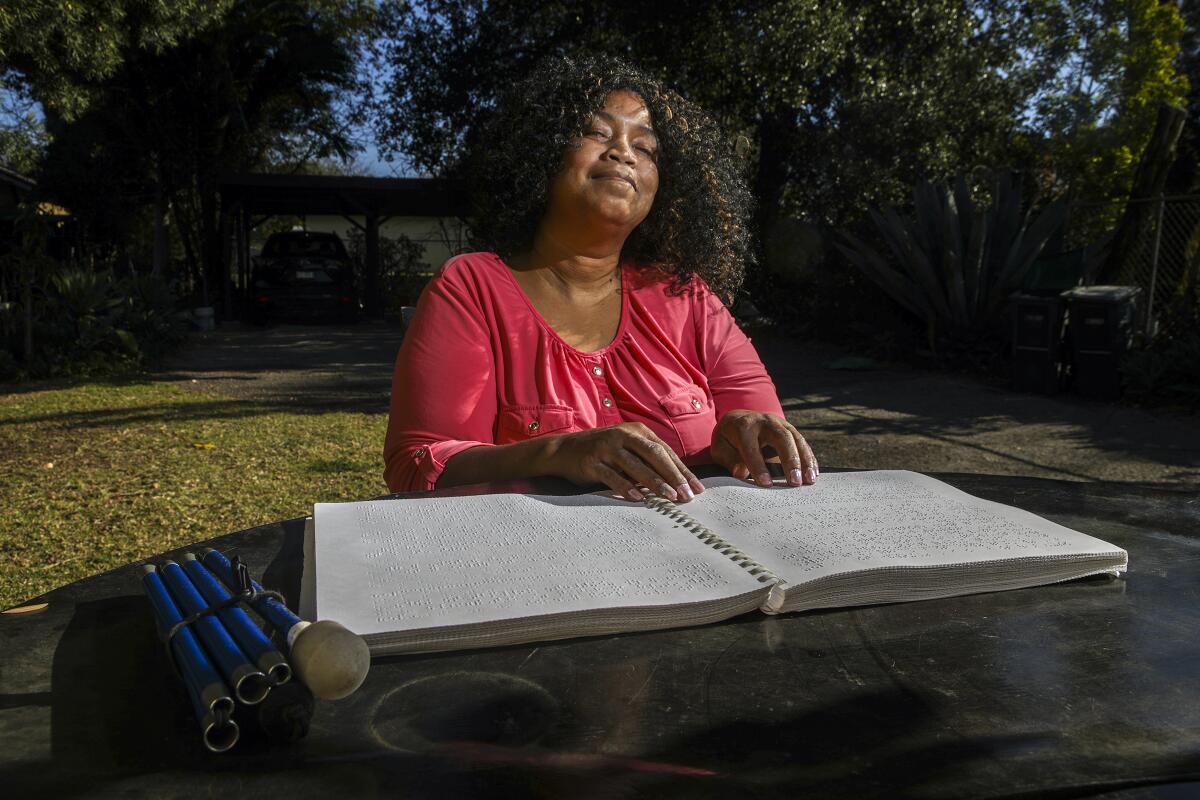
Last month, Lt. Gov. Eleni Kounalakis sent a letter to the board asking members to reject an appeal, which she described as “contrary to our great state’s traditions of civil rights and inclusion for all, including people with disabilities.”
Buelna has said the district would drop litigation after “a successful mediated resolution.” Boyer on Tuesday said, “We remain hopeful that a settlement can be reached.”
In their suit, Payan and Mason said they repeatedly attempted to get the help they needed to complete coursework and tests: a notetaker, materials that could be accessed via a screen reader and software to create audio versions of text. But support was so delayed that they had to choose to either drop a class or accept a lower grade. In some instances, they were discouraged from taking classes, including math, that professors deemed too difficult for a blind student.
“We want to have equal access to educational programs — we don’t want to have things given to us secondhand,” said Mason, who lost her sight as a teenager. “For a lot of us, we’re independent, we are able to manage on our own and get into an educational program, but we don’t want things done soft.”
Mason, who is still a student at Los Angeles Community College, said she had to drop a class this week after the university failed to get her the reading material accommodations she needed four weeks after the class began.
Both students believe the LACCD message has been clear: You don’t belong here.
“I truly am a believer that just because you have a disability doesn’t mean you shouldn’t continue to live a full life,” Payan said. “Let us live. ... I challenge institutions about inequities.”
Payan, who was well into adulthood when an eye infection left him blind, is working on his doctorate degree in public administration at USC after graduating from Cal State L.A.
At Los Angeles City College, the Office of Student Services told him his professors were responsible for securing assistance, while the professors said it was up to student services. “That is your problem, not mine,” one professor told him, according to court document.
In siding with the students, the 9th Circuit in August 2021 said, “Allegations of systemic accessibility barriers in campus websites or the library are claims that impact all blind users, not just the two individual plaintiffs.”
California families have long struggled to get home nursing care for medically fragile children. The problem has persisted with the arrival of COVID.
But one of three judges dissented and agreed with the LACCD argument. Judge Kenneth K. Lee, a conservative lawyer who was appointed under President Trump, said the civil rights laws in question — Section 504 of the Rehabilitation Act and the ADA — prohibit intentional discrimination. Section 504 is a part of the 1973 Rehabilitation Act that prohibits discrimination on the basis of disability.
Last year, a disability rights case involving CVS Pharmacy, which similarly questioned whether unintentional discrimination was a violation of federal law, was headed to the Supreme Court. Although CVS dropped the case, an LACCD court filing refers to it as an issue that “clearly constitutes one that the Court should address.”
Disability rights advocates — including Judith Heumann, who helped negotiate U.S. protections — have wanted LACCD to drop its case for months.
“They need to recognize that what they’re doing is discriminating against these individuals,” Heumann said.
More to Read
Sign up for Essential California
The most important California stories and recommendations in your inbox every morning.
You may occasionally receive promotional content from the Los Angeles Times.
